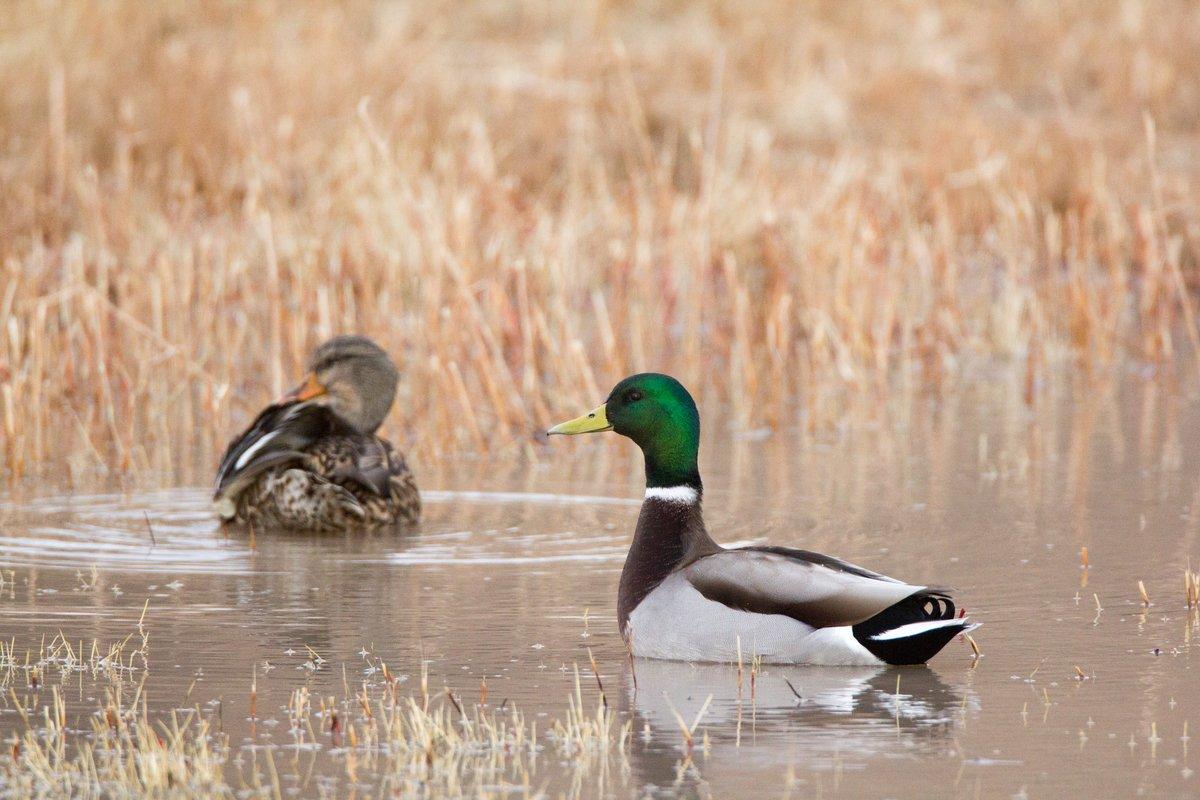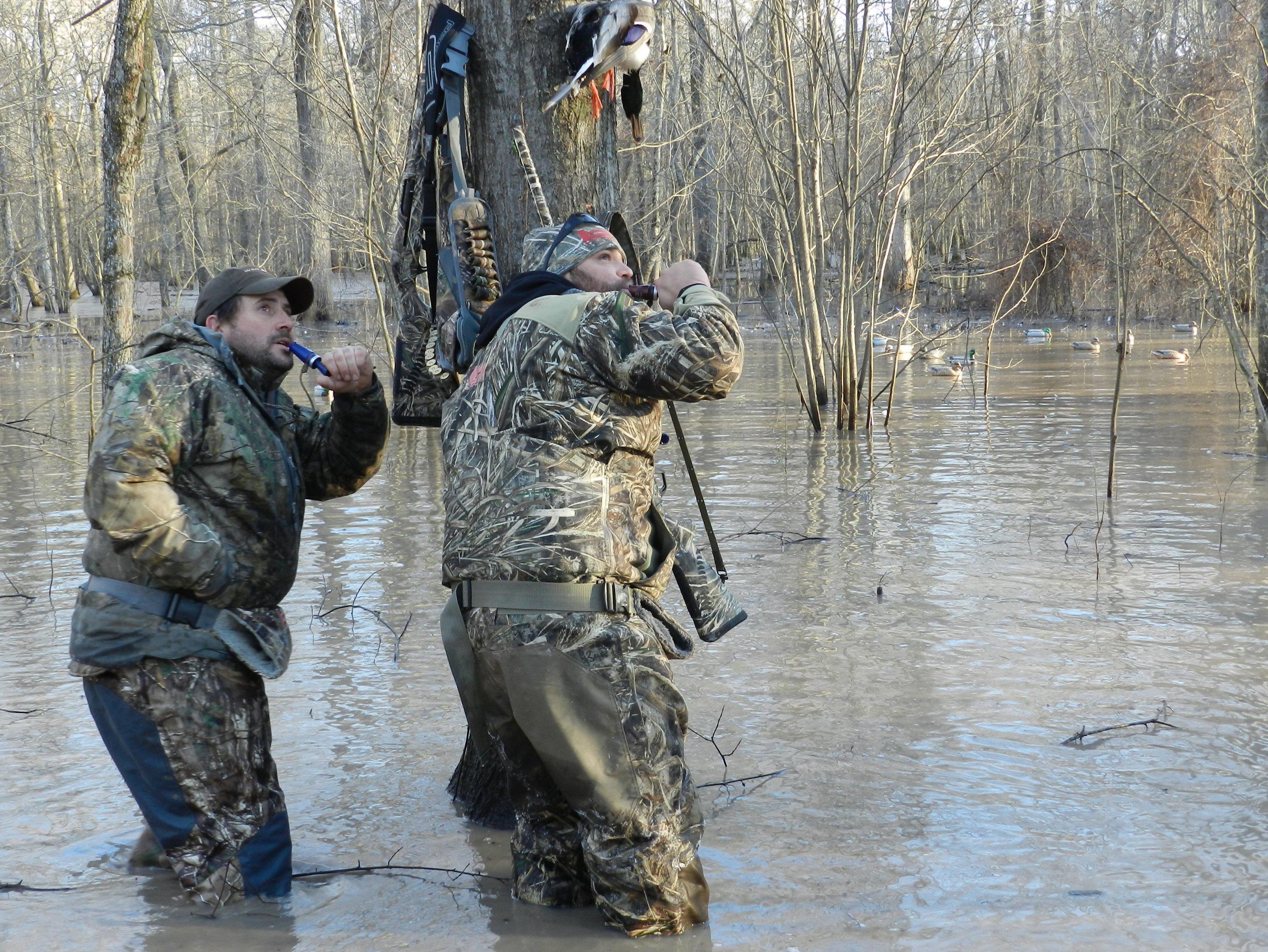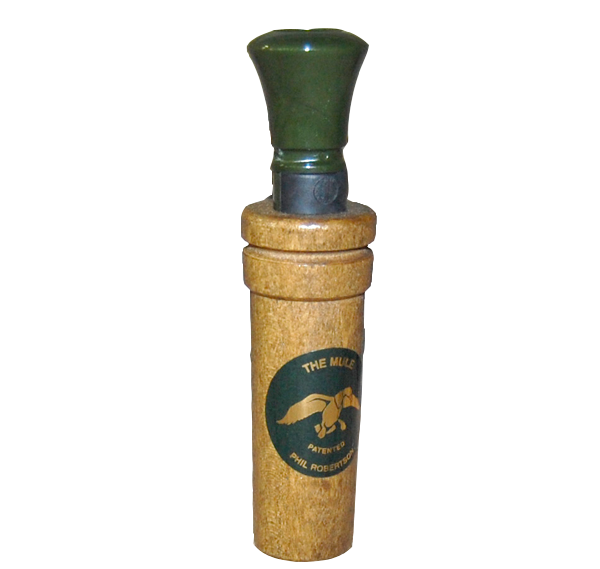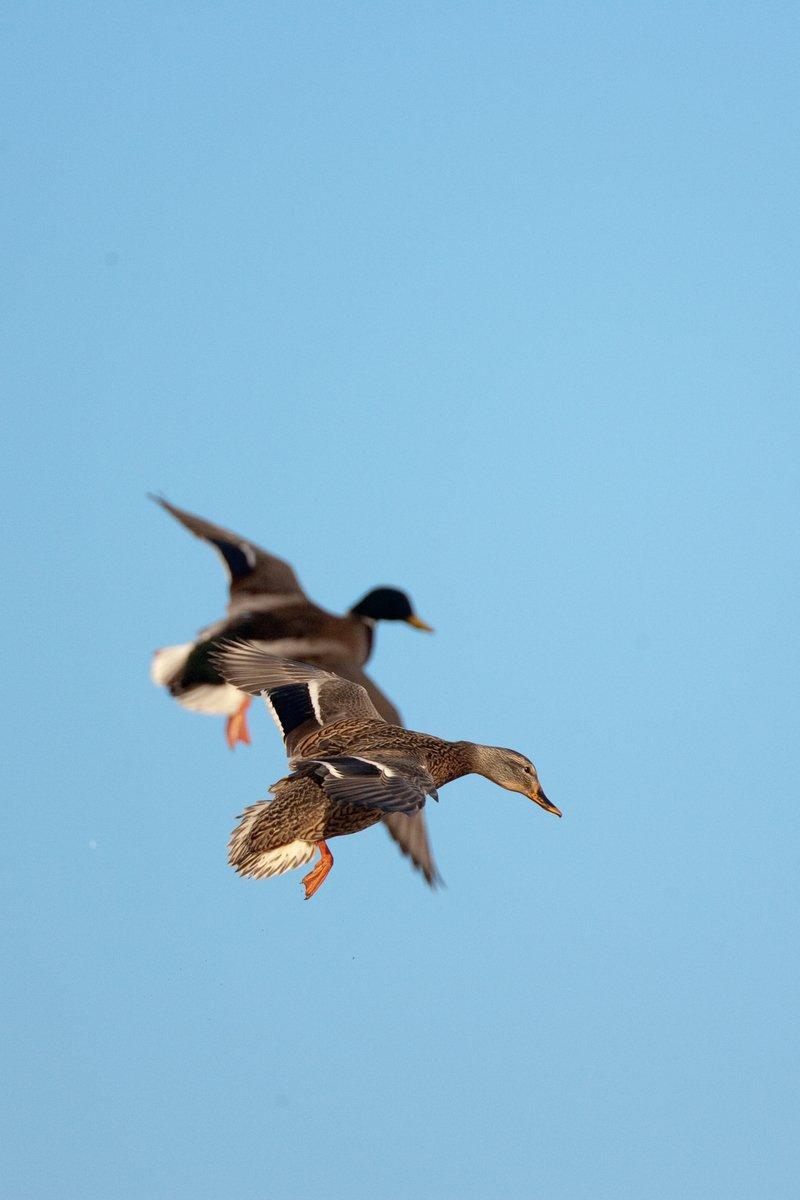Duck calling is one of the most difficult types of game-calling to learn. These 10 tips will make you better.
Duck calling is still something of a mystery to you. You've burned countless hours practicing with your call in the truck, watching instructional Youtube videos, and making, well, noise out in the marsh. Occasionally, your calling results in a fly-by that's close enough for a pass shot. But that's not what you're after.
You've seen good callers command ducks into the decoys—and that's what you want to learn to do yourself. This list of tips, compiled with the help of top waterfowl guides, call makers, and thousands of field hours, will help you be a better duck caller.
You Can't Quack for Squat
The range of sounds replicable with a duck call can be overwhelming. While more advanced calling sequences can work, the easiest sound is grossly underrated: the simple quack. When a single hen is allowed to land in your spread, you'll usually get to hear her raspy, guttural quack. It'll be slightly urgent, as if she's lost from her friends. Yet that sound is often overlooked in modern calling routines.
The Fix: Start at step one, and learn to quack. Doing so will often bring ducks to the spread when seemingly nothing else will. On still, calm days, or in areas with heavy hunting pressure, a single-note quack in repetition is deadly. Don't leave home without it.
You Bought a Call Because It's Pretty
Your buddy is a pretty good duck caller, and he firmly believes his $150 custom call is the best one made. But when you try his favorite acrylic masterpiece, the sounds you make … well, they're not good. Regardless of your buddy's instructions, you simply can't make a decent sound with his duck call. When afield, the ducks sure aren't buying it.
The Fix: Find a call that fits your air—not the one that looks pretty or your buddy likes best. This was a tip given to me several years ago by Duck Commander's John Godwin. While most of the guys in the Commander crew blew a modern DC model, Godwin chose an older model call that performed best for him and his calling method. Call manufacturers offer calls with a variety of reed, barrel and end-piece designs. The best way to determine your best fit is through simple trial and error at a dealer with several different calls. (Read: Wood, Polycarb or Acrylic? Which Duck Call is Best for You?)
You're Learning from Duck Hunters, Not Ducks
Information abounds these days, including information about duck calling. The source for much of that information is provided by folks in the contest calling realm. Now, almost without fail, those guys are good at calling ducks. But a contest-calling routine can sound absurdly over the top—particularly if you haven't learned the basics yet.
The Fix: Build your knowledge base by listening to the real thing: ducks. Spend as much time as possible near a refuge or park that holds lots of birds, and not just during duck season. Download a voice recording app on your phone, record the sounds you hear, and use them to provide instant access to the sound of live ducks. Imitate what you hear—and save the contest routines for down the road.
They Don't All Quack
Here's something else you'll notice if you spend time at a refuge: you hear many more sounds than those of hen mallards. You'll hear teal peeping and wigeon and pintails whistling. Drake mallards make a gweeb sound that really gets your blood flowing, and gadwalls are vocal with a soft, distinct quack of their own. You've never tried any of those sounds while hunting.
The Fix: Try them. Many companies produce calls to mimic wigeon, pintails, drake mallards and gadwalls. Give them a try, especially on calm days when calling can be tough. Late season mallards can be real suckers for a good drake whistle, as the males seem to more vocal when pairing with mates for the spring.
You're a Grunter
Everyone knows it's wrong to blow into a duck call; doing that simply produces kazoo-like sounds. So you grunt, deep from within your gut. Occasionally the noise you create sounds like a duck. More often, it leaves you out of breath and sounds like a guy grunting on a duck call.
The Fix: While it may come as a great surprise, the more advanced callers become, the more they actually blow into the call. Veterans learn to play a duck call like an instrument, using forced air that is pressurized in the throat or roof of the mouth, rather than in the stomach. A tell-tale sign of proper technique is the ability to produce ducky sounds at all volume levels, down to a whisper. Again, start with a single quack to learn proper air pressure. Worry about the other sounds later.
You Make the Wrong Sounds at the Wrong Time
So you've done some practicing, and can make pretty good sounds on a duck call. Yet, you still suck at calling ducks. You're baffled by how often the birds simply ignore you, or even flare away. But while hunting with a veteran, chills go down your spine while you watch him turn birds into the spread with a single hail call at just the right moment. He says something about calling on the corners, but you're not really sure what that means.
The Fix: Learn to watch and read ducks. Only give hail or greeting-style calls at birds when they appear to be leaving the area. If they are approaching, or any single bird in the flock is coming into the decoys, stay quiet, or at most, use single quacks and some feed calls. If the birds circle over and then pass by as if looking for another destination, hit them with a hail call; that's the mysterious corner. When they turn back to you, tone it down again.
Sidebar
3 Budget Calls to Help You Suck a Little Less
Perfectly imitates the soft quacks of grey ducks. $15
One of the easiest, most realistic duck whistles available. Perfect for green-winged teal, wigeon and pintail calls. $18
Duck Commander Mule
A classic raspy, wooden double-reed, perfect for close-in calling. $40.
You Don't Know What the Sounds Mean
You've heard ducks make a variety of noises, and duck callers make even more. It's apparent that the en vogue method of calling is to use a loud hailing call, followed up by machine-gun chatter once ducks begin circling. Ask yourself: how often do real ducks do that?
The Fix: Ducks make different sounds in different environments. Hundreds of ducks in a marshy refuge make different sounds than a group of birds feeding in the timber. Many call methods are intended to over-exaggerate a natural occurrence, like high-ball hail calls and super-aggressive feed chatter. But such sounds might be overkill when hunting over a couple dozen decoys. Approach duck calling with a naturalist's perspective, and duplicate the sounds based on your surroundings. Remember, for the most part, a mallard feeds a maximum of a foot below water, or 16 inches above ground. Feed chatter doesn't sound natural if your decoys are set in 3 feet of water.
You Don't Know When to Just Shut Up
Calling is one of the most enjoyable aspects of duck hunting. So it's easy to want to call at every duck you see. But sometimes, it's as if the ducks purposely turn away when you call. You're hidden well, and the decoys look good, so you conclude it may indeed be the calling. But how does that make sense? Real ducks call at each other all the time.
The Fix: Don't call at approaching ducks. If you have to make noise for things to feel right, keep it to a minimum. In situations where ducks receive a great deal of hunting pressure, they may actually avoid areas where they hear calling. A few signs you're calling too much: if ducks approach without any calling and decoy immediately, or if ducks fly over, likely down-wind from behind you, and one series of greeting calls turns them on a dime.
Your Cadence is Wrong
While live ducks may have different tones and pitches, they all have a very similar cadence. Not matching that is the surest way to make your duck calls sound fake.
The Fix: As nature reveals, the pitch of a duck's call varies from bird to bird. Young, immature hens are supposedly higher pitched than older, raspy hens. So a caller can have a varying degree of pitch without worry, but matching the cadence and rhythm is critical. Aside from single quacks, a hen's most common sound is a five- to seven-note greeting. The first or second notes are often the most stressed, and then they tone down. Learn what that sounds like (there are numerous recordings of it online, but one of the best is on Ducks Unlimited's website), then record your own calling and match it.
You Don't Know When to Be Aggressive
Most novice callers err on the side of being too aggressive. You're heard that over and again, and have tried to avoid it. And still, you're watching ducks light out of range or fly right on past you.
The Fix: In some situations, loud, aggressive calling works. One is when ducks are about to land in a nearby location, but not directly in your set. Right before they touch down, loud calling will often bounce them back up and bring them into the decoys. Aggressive calling can also work when traveling ducks are flying past your spread without intentions of landing there. Many veterans refer to this as running traffic, and it's often the situation you're in when you're not hunting the X. In that scenario, it can be best to call hard at the high birds to start them down, then tone down to more realistic calling once they circle.
Then, there are days when loud calling is just the most effective method. Only the ducks can tell you that. If they respond to aggressive tactics, but turn away when you slack off, try hammering on them all the way until you shoulder the gun.
That's yet another way of summarizing duck calling's most important tip of all: figure out what the ducks want, and give it to them. Every day is different.












